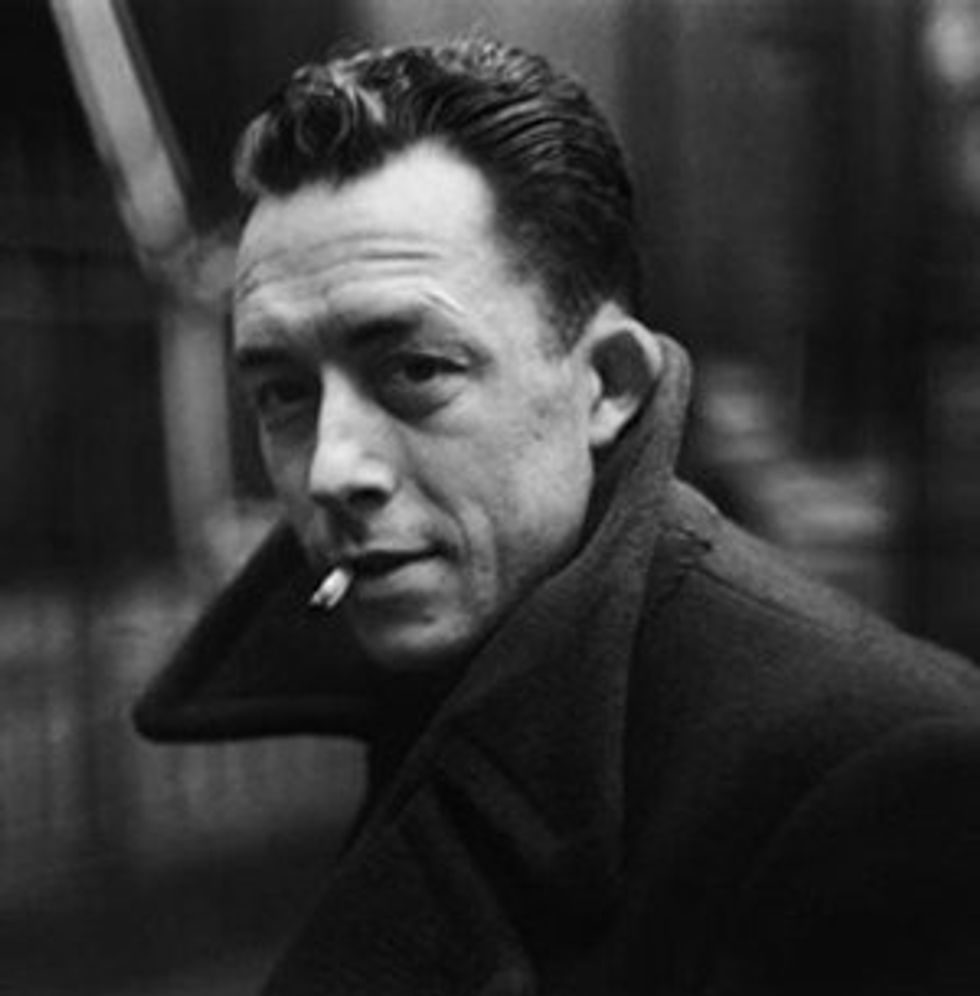Albert Camus (pronounced Ka-Moo) was born in French occupied Algeria in 1913, a place for which he shows deep reverence in his essays. Camus preaches the philosophy of the absurd: his philosophy acknowledges the meaningless of life contrasted against man’s will to create meaning. Indeed, we may live in a universe that is indifferent to our struggles, to our lives, to the world itself; nevertheless, Camus says once we recognize this, then we can fight back, and create our own existence through our own means. His writings impart a somber effect, but at the same time it shows the resiliency of the human spirit, that although we are but specks of dust, we still have the ability to thrive and live with meaning so long as we allow ourselves to do so.
The beauty of Camus’ work is that it is simplistic and yet so profound. That is perhaps also a crude characterization of his overall disposition towards the world and life itself. Here he talks briefly about the weight of life, the magnitude of our existence, and the beauty of our anguish:
“At midnight, alone on the shore. A moment more and I shall set sail. The sky itself has weighed anchor, with all its stars, like the ships covered with lights which at this very hour throughout the world illuminate dark harbors. Space and silence weigh equally upon the heart. A sudden love, a great work, a decisive act, a thought that transfigures, all these at certain moments bring the same unbearable anxiety, quickened with an irresistible charm. Living like this, in the delicious anguish of being, in exquisite proximity to a danger whose name we do not know, is this the same as rushing to our doom? One again without respite, let us race to our destruction. – The Sea Close By (1954)
Here he talks about how we have been led astray by relative truths, and how all we have to contemplate is the world around us.
“The world has been deliberately cut off from what gives it permanence: nature, the sea, more except in the streets, so runs the decree. And, consequently, our most significant works demonstrate the same prejudice. One looks in vain for landscapes in the major European writers since Dostoevski. History explains neither the natural universe which came before it, nor beauty which stands above it. Consequently it has chosen to ignore them. Whereas Plato incorporated everything- nonsense, reason, and myths-our philosophers admit nothing but nonsense or reason, because they have closed their eyes to the rest. The mole is meditating." — A Short Guide to Towns Without a Past (1954)
In what is perhaps Camus’ most notable essay, “The Myth of Sisyphus,” he states that there is only one real philosophical problem, and that is suicide. He discusses death insofar as it relates to man’s ability to create meaning in a meaningless world, and how if the world is devoid of that possibility, then why live? Here he discusses that we must live, for the sake of it, to soak up everything, and realize the significance of being alive at all:
“This world is beautiful, and outside it there is no salvation. The great truth that it patiently taught me is that the mind is nothing, nor even the heart. And that the stone warmed up by the sun or the cypress tree shooting up against the suddenly clear sky mark the limits of the only universe in which “being right” is meaningful: nature without men.” – The Desert (1937)
Overall, Camus’ philosophy is so astounding because he realizes that life is meaningless, we are all going to die, there is no truth outside of our existence, and yet here we are; we must enjoy life to no end. His idea that our life has meaning insomuch as we realize it, should be, at the very least, a direct comfort to any passionate and vibrant human being.
“Once again, a happy enigma helps me to understand everything” – Albert Camus




















